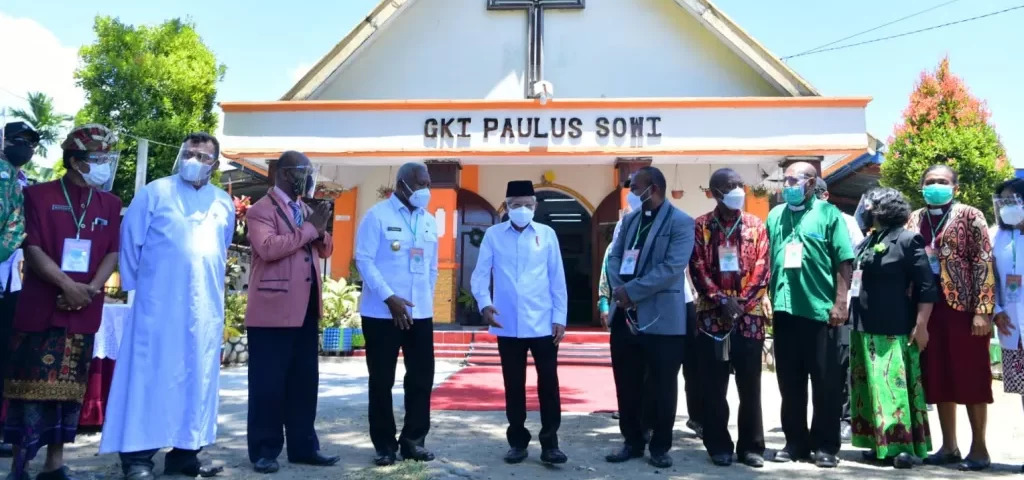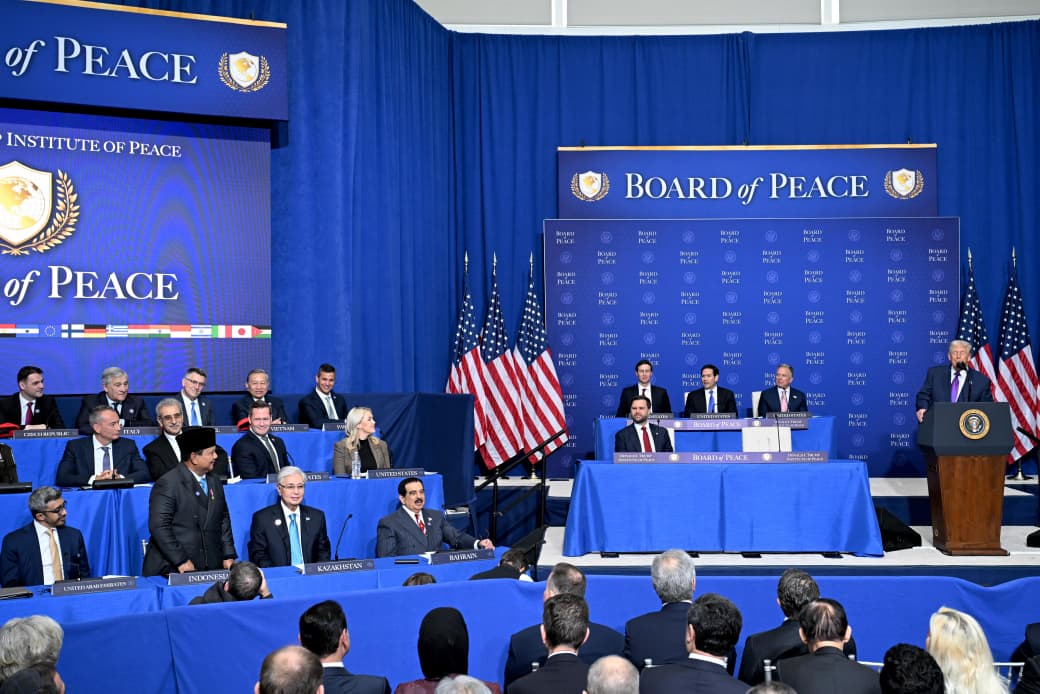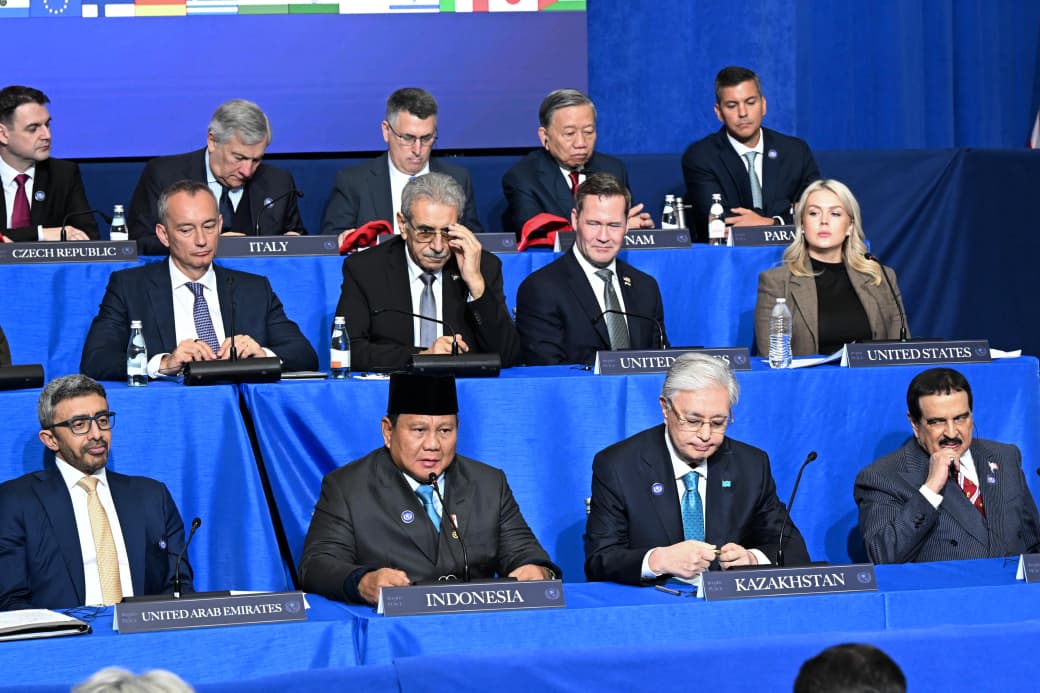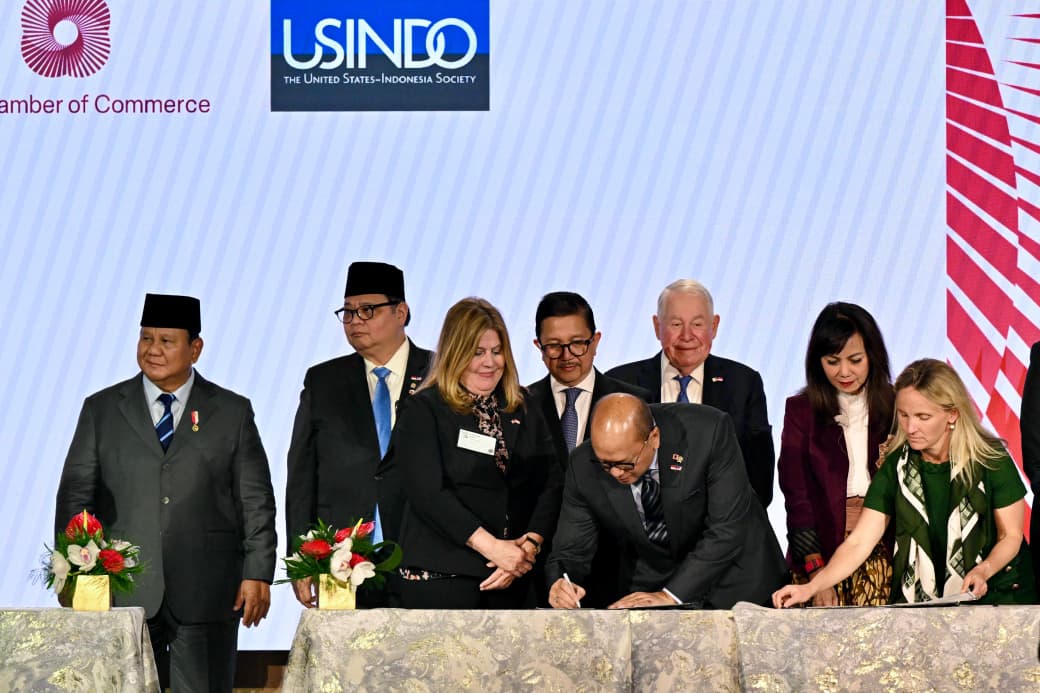Gov’t Committed to Developing Papua through Education

VP Ma’ruf Amin meets with interfaith figures at Paulus Sowi Church, Manokwari, West Papua province, Friday (15/10). (Photo by: Vice Presidential Secretariat)
Developing human resources, including developing Papua and West Papua provinces through education, is one of the Government’s priority programs, according to Vice President Ma’ruf Amin.
“The Central Government is committed to developing Papua and West Papua provinces not only to be on par with other provinces but also to outrun them,” Ma’ruf Amin said in a meeting with interfaith figures at Paulus Sowi Church, Manokwari, West Papua province, Friday (15/10).
The Vice President also expressed his appreciation for the efforts made by a number of non-governmental organizations and religious organizations that have helped the Government in improving education in West Papua, adding that that the Government will also continue to develop human resources so they can compete with that of other countries.
“It is in line with our national program, namely producing well-qualified, productive, and healthy human resources who have high competitiveness and bring benefits to others,” he said, adding that outstanding potential talents of Papuans can contribute to the advancement of the provinces.
“Torang bisa (‘we can’ in Papuan) will not merely be a motto but will also be materialized through education, development, and trainings,” he said.
The Vice President ordered Minister of Manpower Ida Fauziyah to develop vocational education programs through the Skill Training Center (BLK) in West Papua in a bid to improve human resources’ quality on skilling, upskilling, and reskilling.
Ma’ruf once again underscored the importance of education for human resources and pushed for intensifying education sector in West Papua.
For the record, allocation for Special Autonomous Fund for Papua has increased from two percent of the total General Allocation Fund (DAU) to 2.25 percent and is expected to improve education sector in the province and improve welfare of the Papuans.
On that occasion, the Vice President also applauded interfaith harmony in West Papua and expressed hope that other regions could follow suit.
The interfaith harmony, he added, is attributable to, good leadership from regional heads, as well as the acts of toleration, solidarity, and respect promoted by religious figures and prominent figures in the regions.
He went on to say that interfaith harmony is a part of the national harmony, which is the country’s main asset in developing the state and nation, as well as in improving people’s welfare.
“We must do our best to maintain it because harmony and unity of Indonesia are fundamental for the life of the people and nation,” he remarked. (VICE PRESIDENTIAL SECRETARIAT/UN) (RAS/EP)







